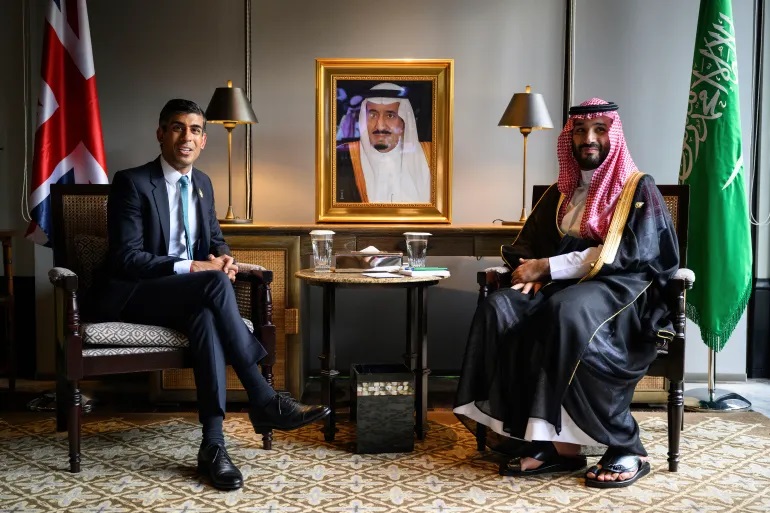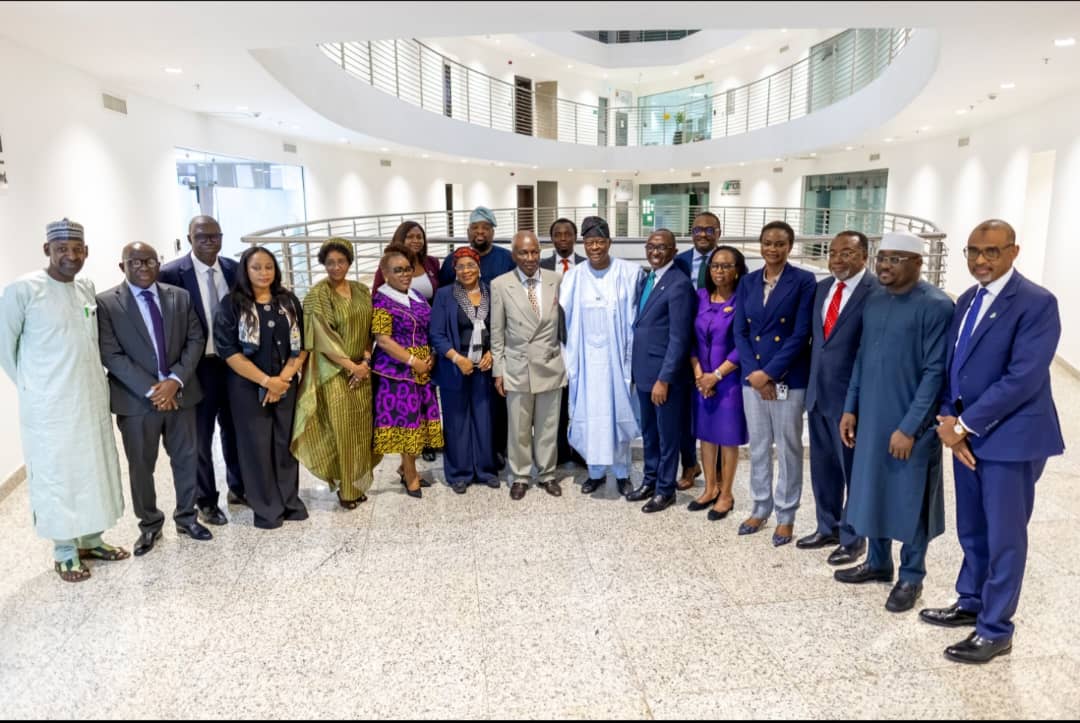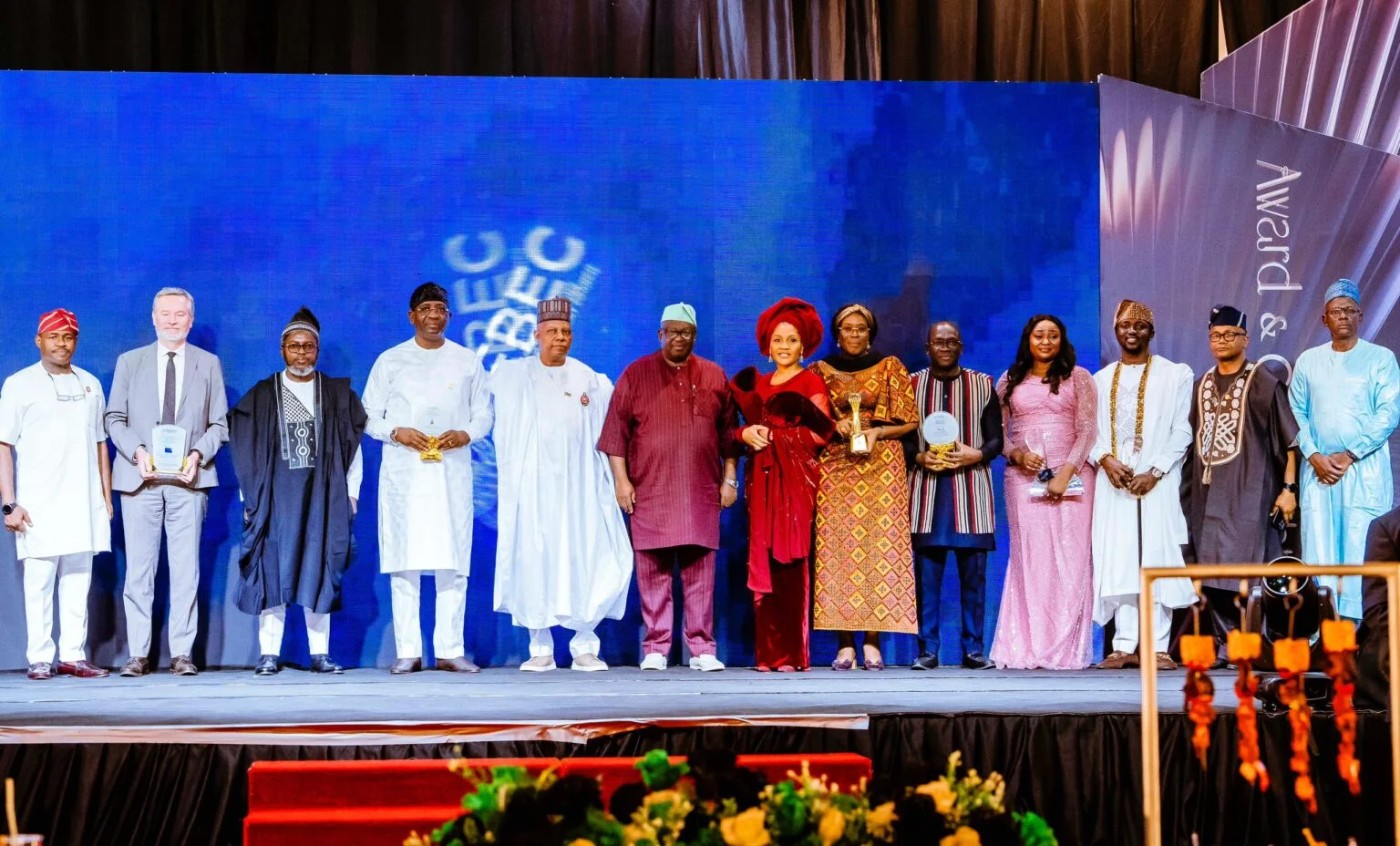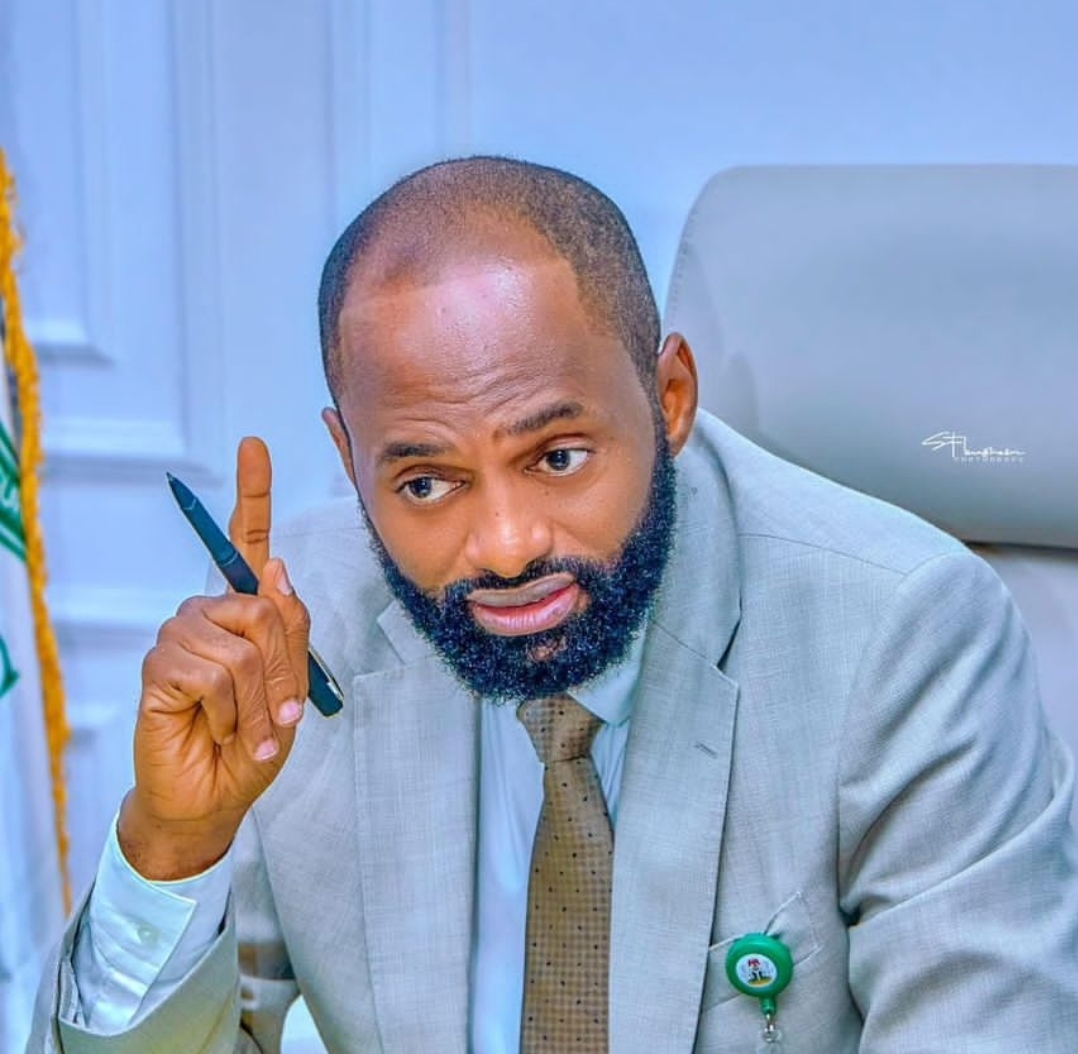British Prime Minister Rishi Sunak has expressed his anticipation for an upcoming meeting with Saudi Crown Prince Mohammed bin Salman, aiming to bolster the UK-Saudi cooperation. This announcement follows reports suggesting that officials from both nations are actively working to schedule a meeting in London before the year’s end.

In a recent phone conversation, the Prime Minister and the Crown Prince affirmed their commitment to advancing collaboration between the UK and Saudi Arabia. The discussions centered around the expansion of trade, investments, as well as matters pertaining to defense and security. Sunak also reaffirmed the United Kingdom’s dedication to upholding Saudi and regional security.
It’s noteworthy that the UK temporarily halted the issuance of new arms export licenses to Saudi Arabia from June 2019 to July 2020, specifically for items that could be employed in the Yemen conflict. However, this move didn’t diminish the mutual interest in furthering diplomatic and economic ties.
While an official visit from the Saudi Crown Prince could potentially stimulate progress, there are apprehensions among certain British politicians and human rights organizations. Criticisms have been directed towards the Saudi leader due to his alleged involvement in the 2018 assassination of Washington Post journalist Jamal Khashoggi by Saudi operatives. This incident, which took place in the Saudi consulate in Istanbul, triggered global outrage and calls for accountability.
Layla Moran, the foreign affairs spokesperson for Britain’s Liberal Democrats party, expressed astonishment at Sunak’s approach, stating that extending a warm welcome to Mohammed bin Salman “defies comprehension.”
The Times, a reputable British newspaper, reported that the visit is anticipated in the forthcoming months; however, no specific date has been confirmed. This possible visit gains significance in the backdrop of geopolitical shifts, particularly the urgency among Western countries, including Britain, to diversify their energy sources following Russia’s incursion into Ukraine. Capitalizing on Saudi Arabia’s ambitious plan to channel hundreds of billions of dollars into diversifying its economy away from oil, the UK and other Western nations are keen to foster deeper economic ties.
In a previous interaction, Sunak had a dialogue with Prince Mohammed during the Group of Twenty summit in Bali, where energy markets were a central topic of discussion.
Saudi Arabia, a nation long critiqued for its human rights record, is striving to redefine its image through an all-encompassing agenda of societal and economic reform known as Vision 2030. This reform-oriented approach is aimed at modernizing various aspects of Saudi society and the economy.
Notably, Crown Prince Mohammed bin Salman has refrained from visiting Britain since March 2018, a period predating the Khashoggi murder and the subsequent diplomatic fallout. As new prospects for engagement arise, the pending visit holds the promise of charting a new trajectory for UK-Saudi relations.
Elevating Diplomacy and Cooperation: A Glimpse into the UK-Saudi Partnership
As anticipation builds for the imminent meeting between British Prime Minister Rishi Sunak and Saudi Crown Prince Mohammed bin Salman, the stage is set for a significant step in strengthening the collaboration between the United Kingdom and Saudi Arabia. Amid reports indicating active efforts by officials from both nations to finalize a meeting in London by year-end, the prospects for enhanced diplomatic ties are indeed promising.
The recent telephonic exchange between the Prime Minister and the Crown Prince underscores their shared commitment to fostering a multifaceted partnership. Central to their discussions were key domains such as trade expansion, investments, and the critical realms of defense and security. Within this discourse, Prime Minister Sunak reiterated the unwavering dedication of the United Kingdom towards safeguarding Saudi and regional security interests.

A notable backdrop to this interaction is the temporary suspension of new arms export licenses to Saudi Arabia. This measure, implemented from June 2019 to July 2020, specifically targeted items that could potentially be employed in the Yemen conflict. Despite this, the collaborative intent of the two nations continues to drive the narrative forward, signifying the depth of mutual interests that transcend individual policy adjustments.
However, the prospect of an official visit by the Saudi Crown Prince raises concerns and debates on multiple fronts. Some British politicians and human rights advocacy groups have been vocal about their reservations, citing the need for a thorough examination of Saudi Arabia’s role in the 2018 assassination of Washington Post journalist Jamal Khashoggi. The incident, which unfolded within the premises of the Saudi consulate in Istanbul, evoked a global outcry, prompting calls for accountability and transparency.
Layla Moran, a prominent voice as the foreign affairs spokesperson for Britain’s Liberal Democrats party, expressed incredulity at the cordial reception extended to Mohammed bin Salman, stating that such a gesture appears perplexing given the circumstances.
As British newspaper The Times reported, a forthcoming visit is anticipated in the ensuing months; however, a definitive date remains elusive. This anticipated visit gains added significance in light of the evolving geopolitical landscape, notably the urgency among Western nations, including the United Kingdom, to diversify their energy sources in the aftermath of Russia’s actions in Ukraine. This diversification strategy is poised to align with Saudi Arabia’s substantial investment plans aimed at steering its economy away from oil dependency.
A prior engagement between Sunak and Prince Mohammed during the Group of Twenty summit in Bali exemplifies the continuity of dialogue on shared interests, particularly the dynamics of energy markets. This discussion underscores the concerted efforts towards deeper economic integration and strategic alignment between the two nations.
In the larger context, Saudi Arabia’s pursuit of comprehensive reform under the banner of Vision 2030 serves as a noteworthy initiative. Aiming to reshape its image, the nation has embarked on a transformative journey encompassing societal and economic dimensions. This ambitious agenda seeks to modernize various facets of Saudi society and diversify its economy, thereby projecting a new narrative to the global community.
It is important to note that Crown Prince Mohammed bin Salman’s anticipated visit holds additional significance as it marks a considerable gap since his last visit to Britain in March 2018, a period preceding the tragic assassination of Khashoggi and the ensuing diplomatic aftermath. As the specter of renewed engagement looms, the forthcoming visit carries the promise of not only elevating bilateral ties but also shaping a trajectory that could reverberate across regional and global landscapes.





